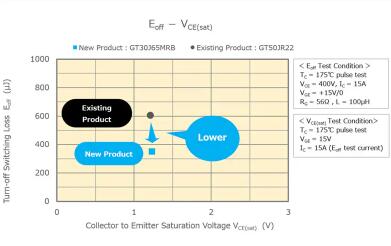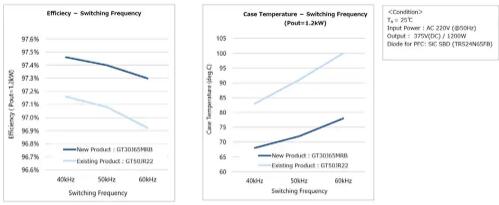Manufacturers
- Abracon
- Adam Tech
- Aerospace, Defense & Marine
- Agastat
- AIC
- AKM Semiconductor
- Alcoswitch
- Allegro
- Alps Electric
- Altera
- AMI Semiconductor
- AMP
- ams
- Analog Devices (ADI)
- Aptina Imaging
- Atmel
- Avago / Broadcom
- AVX
- Axicom
- Bccomponents
- Beyschlag
- BI Technologies
- Bourns Inc.
- Bowei Integrated Circuits
- Bridgelux
- Buchanan
- California Micro Devices
- Catalyst Semiconductor
- CGS
- Cirrus Logic
- Citizen Electronics
- CML Microcircuits
- Coiltronics
- Cooper Bussmann
- Corcom
- Core Logic
- Cree
- CSR PLC
- CTS
- Cypress Semiconductor
- Dale
- Data Image
- Deutsch
- Diodes Incorporated
- DOMINANT Opto Technologies
- E-T-A
- Eaton
- ECS
- Edison Opto
- Elcon
- EPCOS
- Epistar
- Epson
- Everlight Electronics
- Exar
- Fairchild Semiconductor
- FCI
- Freescale Semiconductor
- Fremont Micro Devices (FMD)
- Fujitsu Semiconductor
- Fulltech Electric
- General Semiconductor
- Harvatek
- Holsworthy
- Hsuan Mao Technology
- IDT
- Infineon Technologies
- Innolux
- International Rectifier (IR)
- Intersil
- IRC
- ISSI
- IXYS-IC
- Jing Cheng Electronical
- JL World
- Johanson Dielectrics
- Johanson Technology
- JRC / NJR
- JST
- KEC
- Kilovac
- Kingbright
- Kyocera Industrial Ceramics
- LEDiL
- Linear Technology / ADI
- Lite-On Technology
- Littelfuse
- Lumex
- Lumileds
- Luminary Micro
- Luminus Devices
- Macronix
- Maojwei / ZJPT
- Maxim Integrated
- MCC
- Mean Well Enterprises
- Microchip Technology
- Micron
- Microsemi
- Mini-Circuits
- Molex
- Murata Manufacturing
- Murata Power Solutions
- MWT
- National Semiconductor
- Nichicon
- Nippon Chemi-Con
- NJR / JRC
- NVE
- NXP Semiconductors
- OEG
- Omnivision
- ON Semiconductor
- Optek Technology
- Optrex
- OSRAM Opto Semiconductors
- OTAX
- Panasonic
- Peregrine(pSemi)
- Potter & Brumfield
- Power Integrations
- PowerStor
- Preci-Dip
- Prewell
- Products Unlimited
- Pulse Electronics
- PulseCore Semiconductor
- Qorvo
- Raychem
- Renesas Electronics
- RFMD
- Richtek Technology
- ROHM Semiconductor
- Rubycon
- Samsung Electro-Mechanics
- Samsung Semiconductor
- Schaffner
- Schrack
- Seiko Instruments, Inc. (SII)
- Semtech
- Sensata
- Seoul Semiconductor
- Sfernice
- Sharp Display
- Sharp Microelectronics
- Silicon Labs
- Siliconix
- Skyworks Solutions
- SoniCrest / JL World
- Spansion
- Sprague
- Stanley Electric
- STMicroelectronics
- Sunny Electronics
- Susumu (SSM)
- Taimag
- Taiyo Yuden
- TDK
- TDK-Lambda
- TE Connectivity
- Teccor
- Texas Instruments (TI)
- Thin Film
- Tianma Micro-electronics
- TOCOS
- TOKO
- Toshiba Electronic Components
- TT Electronics
- Tusonix
- TXC
- Tyntek
- Vishay
- Vishay Precision Group
- Vitramon
- Walsin Technology
- Weidmuller
- Welwyn
- Wickmann
- Winbond
- Xilinx
- Yageo
- Zetex Semiconductors
- ZJPT / Maojwei
뉴스
Toshiba’s New Discrete Insulated Gate Bipolar Transistor Boosts Efficiency of Air Conditioners and Industrial Equipment
2023-03-09 | 반환 correction (PFC) circuits[1] of air conditioners and large power supplies for industrial equipment. Volume shipments start today.
correction (PFC) circuits[1] of air conditioners and large power supplies for industrial equipment. Volume shipments start today.Power semiconductors have won recognition as important devices in energy conservation efforts, including moves toward carbon neutrality. In industrial equipment and home appliances, which consume considerable electricity, demand for highly efficient switching devices is growing due to the increasing use of inverters in air conditioners and the need to lower power consumption in large-scale power supplies for industrial equipment. This has spurred increasing demand for low-loss switching devices and higher switching frequencies in PFC circuits.
Toshiba brings the latest process to its new IGBT. An optimized trench structure secures an industry-leading[2] low switching loss (turn-off switching loss) of 0.35mJ (typ.)[3], approximately 42%[4] lower than in Toshiba’s previous product, GT50JR22. The new IGBT also has a built-in diode with forward voltage of 1.20V (typ.)[5], approximately 43%[5] lower than in GT50JR22. These improvements contribute to increased equipment efficiency.
For PFC circuits of air conditioners, Toshiba’s previous product GT50JR22 is used with an operating frequency below 40kHz[6]. GT30J65MRB is Toshiba’s first IGBT for PFC for use below 60kHz[6], achieved by reducing switching loss (turn-off switching loss) to secure higher frequency operation.
Toshiba will continue to expand its product line-up to meet market trends and improve equipment efficiency.


Notes:
[1] Power factor correction (PFC) circuit: A circuit that reduces the phase difference between voltage and current to bring the power factor close to unity, in order to suppress harmonic components generated in switching power supplies.
[2] Toshiba survey, as of March 2023.
[3] Test condition: Inductive load, VCE=400V, IC=15A, VGE=15V, RG=56Ω, Tc=175°C
[4] As of March 2023, values measured by Toshiba (test condition: VCC=400V, IC=15A, VGG=+15V/0, RG=56Ω, Tc=175°C).
[5] Test condition: IF=15A, VGE=0V, Tc=25°C
[6] As of March 2023, values measured by Toshiba using its PFC evaluation boards.
Applications
>Home appliances (air conditioners, etc.)
>Industrial equipment (factory automation equipment, multi-function printers, etc.)
Features
>Industry-leading[2] low switching loss (turn-off switching loss): Eoff=0.35mJ[3] (typ.) realized by the latest process
>Built-in freewheeling diode (FWD) by reverse conducting (RC) structure
>Fast switching time (fall time): tf=40ns (typ.) (Tc=25°C, IC=15A, RG=56Ω)
>Low diode forward voltage: VF=1.20V (typ.) (Tc=25°C, IF=15A, VGE=0V)
Main Specifications
(Ta=25°C, unless otherwise specified)
Follow the link below for more on the new product.
GT30J65MRB
Follow the link below for more on Toshiba’s IGBTs.
IGBTs
* Company names, product names, and service names may be trademarks of their respective companies.
* Information in this document, including product prices and specifications, content of services and contact information, is current on the date of the announcement but is subject to change without prior notice.
Source: https://www.global.toshiba





